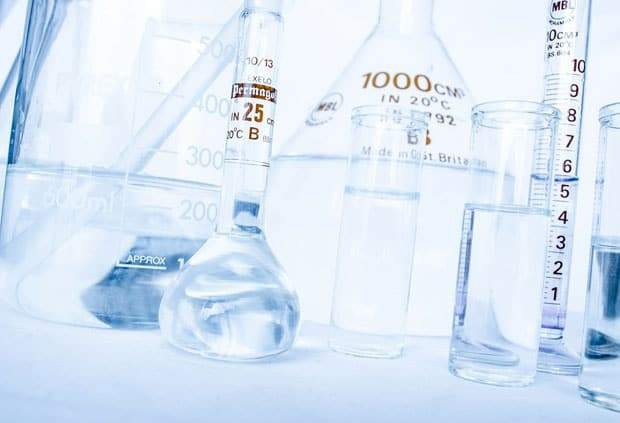Propylene glycol (also known as PG) is one of the most common ingredients in water-based personal lubricants, and if you've used more than one lube, there's a decent chance that you've already had contact with the chemical.
In fact, if you've ever had frozen custard, used cosmetics, or brushed your teeth, you've almost certainly benefited from PG. In recent years, there's been a backlash against synthetic substances in sexual lubricants, even though synthetic ingredients aren't necessarily more dangerous - they're simply created through industrial processes.
Many people avoid propylene glycol products, but this is largely unnecessary: it's a safe, useful ingredient, and it's commonly found in some of the most popular lubricant formulas.
What is Propylene Glycol (And What Does It Do?)

To understand the risks of products with PG, it's helpful to understand its function. Propylene glycol is most commonly used as a humectant, which means that it stops lubricants from drying out. This is important for water-based lubricants, which can evaporate in a matter of minutes if they're not carefully formulated.
The substance is often misrepresented as a harsh industrial chemical, particularly on the Internet. Still, it's important to note that the glycol used in lubricants typically needs to meet strict USP, USDA, or FDA approval (sometimes all three).
Food-grade propylene glycol is created through a carefully controlled manufacturing process, and it's not identical to the propylene glycol used in industrial applications. In fact, it's created from different chemicals, and while it's structurally similar, it's much safer for internal use.
It's also completely different from ethylene glycol. A toxic substance found in car antifreeze (PG is also found in car antifreeze, but only as a replacement for ethylene glycol, which has a sweet taste that attracts pets).
Unfortunately, some websites mistakenly claim that propylene glycol and ethylene glycol are the same substance. This simply isn’t true. The bottom line is that propylene glycol is commonly used in foods. It's completely non-toxic, according to the Food and Drug Administration (FDA) and the World Health Organization (WHO). You probably don't need to think twice about using products that contain PG.
Will Propylene Glycol Irritate My Skin?

Just to reiterate: most people can safely use products with propylene glycol without any issue whatsoever. It's considered safe, especially in the relatively low amounts found in personal lubricants. However, as is the case with most lubricant ingredients, propylene glycol can cause skin irritation for some users.
People with sensitive skin may experience burning or itching; symptoms usually subside within several hours. In rare cases, users might show contact dermatitis symptoms (think of a poison ivy rash). This is most common with cosmetics that contain PG.
Propylene glycol can also cause vaginal irritation for women with fungal and bacterial infections. However, it doesn't increase the chances of contracting yeast infections, so it's safe to use after you've recovered. If you have eczema or another skin condition, you should check with your physician before using PG's products to play it safe.
Of course, if you're especially sensitive or had a bad experience, you can easily find lubricants that don't contain propylene glycol. Look for a simple silicone or water-based lubricant. Water-based lubricants might not last as long since propylene glycol provides an important function in the formula. Still, there's plenty of great products out there that will give you plenty of lasting lubrication for your money.












